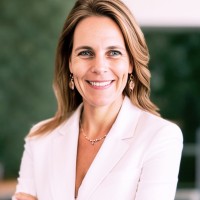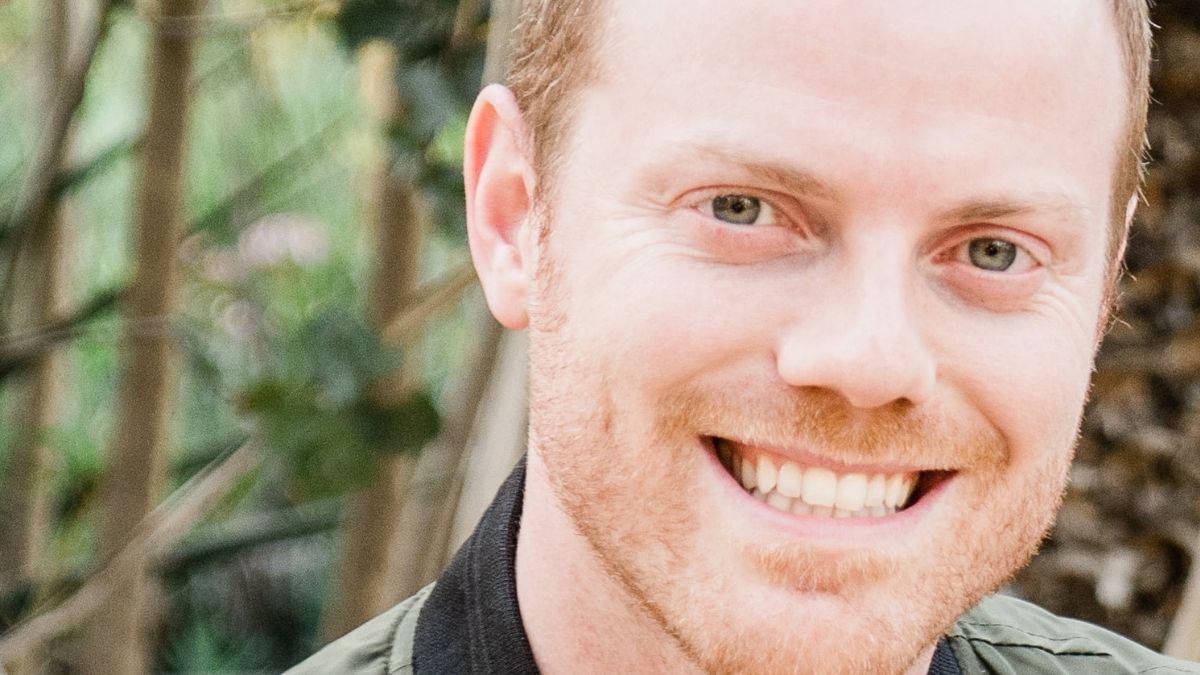Why Your Personal Growth is the Real Engine of Your Business Success
We live in a world that is obsessed with the external metrics of success. We celebrate the unicorn valuations, the record-breaking revenue growth, and the sprawling team sizes. We meticulously track our customer acquisition costs, our conversion rates, and our profit margins. These are the visible, tangible signs of a successful business.
But what if I told you that all of these are lagging indicators? What if they are simply the fruit, and not the root?
After decades of building my own businesses, investing in hundreds more, and mentoring countless founders, I have come to believe with absolute conviction that the single greatest predictor of a business's long-term success is not its business plan, its funding, or its product. It is the personal growth trajectory of its founder.
Your business cannot outgrow you. It is a direct reflection of your mindset, your resilience, your self-awareness, and your capacity to lead. The work you do on yourself is the most valuable and highest-leverage work you will ever do for your business.
This profound and often-overlooked topic was at the very centre of a fantastic conversation I had on my podcast with Tamsin, a sharp and insightful leader who sees that entrepreneurs have a huge role to play in shaping our entire economy. Her questions were not about the "what" of business, but the "who" of the business owner. She wanted to know about success and whether it is truly dependent on "personal development." And if sitting still is never an option, how do you know where to spend your most precious resource—your energy?
Our conversation was a deep dive into the inner work of leadership.
Today, inspired by Tamsin's brilliant questions, I want to give you my definitive guide to why your personal development isn't just a "nice-to-have"; it is your single greatest competitive advantage.
The Founder as the First System - Your Business is a Mirror
Think of your business as an ecosystem. In the beginning, you are not just in the ecosystem; you are the ecosystem. Your personal habits, your beliefs, your fears, and your communication style are the foundational code upon which the entire company is built.
- If you are personally disorganized and chaotic, your business operations will be chaotic.
- If you are afraid of conflict, your team will develop a culture of avoiding tough conversations, leading to simmering resentment and unresolved problems.
- If you are a poor communicator, your team will be confused, your strategy will be muddled, and your marketing will be ineffective.
- If you have a fixed mindset and believe you have all the answers, you will build a company that cannot learn, adapt, or innovate.
Conversely, if you are committed to your own personal development:
- If you work on your self-awareness, you will build a team that has clear roles and responsibilities.
- If you learn to manage your own emotions and stress, you will create a calm, resilient, and psychologically safe environment for your team.
- If you dedicate yourself to becoming a better communicator, you will build a culture of clarity, alignment, and trust.
- If you cultivate a growth mindset, you will build a learning organization that embraces challenges and is constantly evolving.
Your company is a mirror. It reflects who you are, warts and all. The fastest way to upgrade your company is to upgrade yourself. This is not selfish; it is the ultimate act of leadership and responsibility.
The Energy Dilemma - How Do You Know Where to Spend Your Most Valuable Resource?
This was Tamsin's crucial follow-up question. If personal growth is key, and sitting still is not an option, how do you choose where to focus? The world is full of books, courses, coaches, and seminars all promising to change your life. It can be overwhelming.
The answer is not to try and do everything at once. The answer is to identify the single biggest bottleneck to your next level of growth, and recognize that, more often than not, that bottleneck is you.
You need to diagnose your own growth edge. Here is a framework:
1. The Stage of Your Business:
The personal development you need as the founder of a pre-revenue startup is very different from what you need as the leader of a 50-person company.
- Startup Phase (0-10 employees): Your focus here is on execution skills and resilience. You need to learn how to sell, how to market, how to manage your time, and how to handle the emotional rollercoaster of constant rejection.
- Scale-Up Phase (10-50 employees): Your focus must shift to leadership and systems. You need to learn how to delegate effectively, how to hire well, how to build a culture, and how to lead managers instead of just doers. This is where you must evolve from being the best player to being the best coach.
- Mature Phase (50+ employees): Your focus shifts again to vision and governance. You need to learn how to manage a board, how to think about long-term strategy and succession planning, and how to be the external ambassador for your brand.
2. The Pain in Your Business:
Your business will tell you what you need to learn. It sends you signals in the form of pain points.
- Is your team constantly confused about priorities? The pain is a lack of clarity. Your personal development focus should be on strategic thinking and communication.
- Are you consistently running out of cash, even though you're busy? The pain is a lack of financial acumen. Your personal development focus should be on learning to read your financial statements and understand your business model's key levers.
- Is your team's morale low and turnover high? The pain is a leadership deficit. Your personal development focus should be on emotional intelligence, feedback, and culture building.
3. Your Personal Zone of Discomfort:
What is the one thing you are consistently avoiding? The one conversation you know you need to have? The one task that makes your stomach clench? That feeling of resistance is a giant, flashing arrow pointing directly at your next area for growth. Your greatest growth as a leader lies on the other side of your greatest discomfort.
By identifying the bottleneck—whether it’s a skill gap dictated by your stage of growth or a leadership challenge revealed by the pain in your business—you can stop randomly consuming self-help content and start a targeted, strategic program of personal development that will have a direct and immediate impact on your company.
The Tools of Transformation - How to Actively Pursue Growth
Once you know where to focus, how do you actually do the work? Here are the most effective tools I have used and seen other great leaders use:
- A Voracious Reading Habit: Leaders are readers. I dedicate time every single week to reading books on business, leadership, psychology, and biographies of people I admire. It is the highest-ROI investment you can make.
- A Curated Inner Circle (Your Personal Board): You are the average of the five people you spend the most time with. Are you surrounding yourself with people who challenge you and inspire you? Intentionally build a network of mentors, peers, and advisors who will push you to be better.
- Professional Coaching or Therapy: Having an objective, expert third party to help you see your own blind spots is not a sign of weakness; it's a sign of strength. It is an investment in your own operating system.
- The Power of Reflection: You cannot learn from experience if you do not take the time to reflect on it. This is why I am a passionate advocate for practices like journaling. At the end of each week, asking simple questions like "What went well?" "What was challenging?" and "What did I learn?" can transform your experiences into profound wisdom.
A Conversation for Leaders, Not Just Founders
What I loved about my conversation with Tamsin is that while we spoke through the lens of entrepreneurship, the principles are universal. These are the truths of leadership in any field. Her recognition that entrepreneurs have a vital role to play in the broader economy is so important. By doing our own inner work, by becoming better leaders, we don't just build better businesses. We build better teams, stronger communities, and a more innovative and resilient economy for everyone.
Our full conversation on the podcast is a deep, philosophical, and yet intensely practical exploration of these ideas. It is for anyone who is ready to move beyond the "what" of their work and start focusing on the "who" they need to become.
Your Growth is the Only Sustainable Advantage
In a world where business models can be copied, technologies can be replicated, and markets can shift overnight, the only truly sustainable competitive advantage you have is your own ability to learn, adapt, and grow faster than the world is changing around you.
Your commitment to your own personal development is the ultimate lead indicator of your future success. It is the unseen asset that powers everything else. It is the engine that drives your strategy, your culture, and your impact.
So, I ask you the same question Tamsin posed: Where will you spend your energy? What is the one area of personal growth that, if you focused on it for the next 90 days, would have the greatest impact on your business and your life?
The journey of building a great business is, in the end, the journey of building a great self.
Frequently Asked Questions on What Makes a Business Owner Successful?
1. What is the defining trait that separates successful business owners from those who stumble?
The defining trait is strategic discipline coupled with emotional resilience. Successful owners move beyond their initial passion and talent by implementing rigorous systems and processes that allow for scalable growth. They possess the emotional intelligence to learn from mistakes, pivot when data demands it, and maintain a constant, unwavering focus on the core value proposition, ensuring their efforts are consistently profitable.
2. How does the 'one-page' strategy contribute to a business owner's success?
The 'one-page' strategy is a vital tool for success because it enforces unambiguous clarity and alignment. It forces the owner to distill their entire plan into a simple, coherent document outlining the Purpose, Pillars, and Values. This clarity ensures every resource—from capital to employee effort—is directed toward a unified mission, eliminating complexity and preventing the fragmented focus that often derails growth.
3. Why is delegating and 'getting out of the way' a crucial strategic step for a successful owner?
Delegating is a crucial strategic step because it transforms the business from a personal project into a scalable enterprise. A truly successful owner recognizes their limits and empowers professionals to manage the operations. By consciously stepping back from the 'shop floor' and focusing on governance and long-term vision, the owner frees the business to grow beyond the constraints of their individual time and effort, making the business durable and sellable.
4. What role does a strong customer-centric focus play in long-term success?
A strong customer-centric focus is the ultimate driver of long-term success. It ensures the business is solving a genuine, painful market problem that customers are willing to pay for. Success is built on delivering a frictionless, trustworthy experience that is based on the customer's needs, not the company's internal convenience. This focus builds loyalty, reduces Cost of Customer Acquisition (CoCA), and creates an unassailable reputation.
5. As a 'Shark' and investor, what key data points do you look for that signal a business owner's success potential?
As an investor, I prioritize three key data points that signal success potential: 1. Profitability of the Customer: A clear understanding of CoCA and Customer Lifetime Value (CLV). 2. Systemic Scalability: Evidence that the business is built on repeatable systems, not just manual heroics. 3. Strategic Humility: The owner's demonstrated ability to pivot when the data demands it, showing resilience and a rational, data-driven approach to growth.






